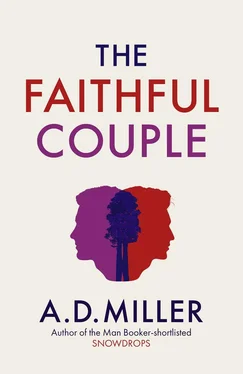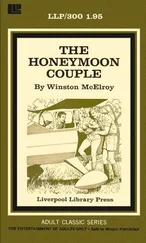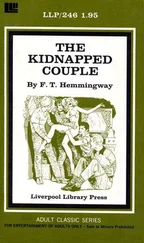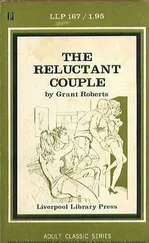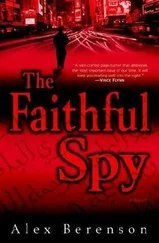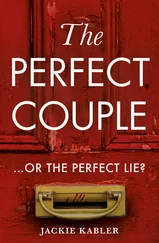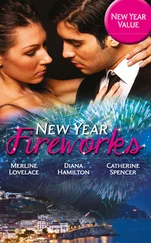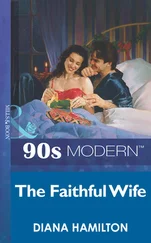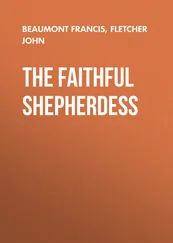He would have to cross the river to Embankment for the District Line. He strode along the passageway at the side of the Royal Festival Hall and up the steps to the pedestrian walkway. The wheel rose behind the railway bridge — toweringly close, but the base occluded — looking, from Adam’s angle, as if it might spin free and crush him. A newsstand sold papers in a dozen languages. The tarpaulins of the restaurants stretched along the riverfront; the overpriced tourist boats glided on the grey water. A tide of money had washed across London since Adam worked at the television company a short hop along the Thames. The tide was going out but the city was still soaking in it.
Just below the bridge, on the small riparian beach (plastic plates and broken bricks and washed-up electrical wires among the pebbles), someone was shouting. He looked down to see a child, a girl — four or five, he estimated — standing alone at the water’s edge. The shout came again, and a man ran from the bottom of the steps that led to the beach and snatched the girl up, reprimanding her lovingly.
Adam took out his BlackBerry and dialled as he made his way onto the bridge. Two rings and she picked up.
‘No,’ Claire said. ‘Not on the mantelpiece… Yes. Adam.’
‘Just, hi, to say I won’t be home for dinner.’
‘Absolutely not… What? It’s our takeaway night. I thought we’d have Japanese.’
‘Sorry, darling,’ he said. ‘Can’t help it, you know.’
‘That’s it — both of you. I said, that’s it… Sorry. Adam.’
He had always been faintly afraid of this bridge, ever since he saw a news item about two posses of muggers who, late at night, had trapped their hopeless victim in the middle. But this evening it was beautiful, festive, the discreet power of the ministries on one side of the river, the carousel and promenaders on the other.
‘Anything new today? Orders, I mean.’
‘Three from the Cotswolds,’ Claire said. ‘Two from Brighton. One from Dartmoor. Oh and that man from Habitat called again.’
‘That’s great, Clezzy.’
‘It’s just an enquiry.’
‘That’s wonderful.’
‘Harry wants you.’
Her palm over the receiver, then Harry’s, muffling it differently, then his son’s quick breath.
‘How many did you score today?’
‘Only two, but one was a header.’
‘That’s great, Harry. Wonderful.’
‘A header!’
‘Wonderful, Harry. What did Miss Franks say about —’
‘Bye, Daddy.’
‘Your mother called,’ Claire said. ‘She wants to come round with Godfrey. Sunday, she said.’
His mother was okay, too.
‘Sorry,’ Adam said.
‘It’s all right. I’ll do fish pie.’
A beggar was squatting halfway across the bridge, disturbing the pedestrian flow. He was wrapped up much too warmly for the temperature in his coat and his blanket and his sleeping bag and, probably, everything else that he owned. Adam turned back towards the beach. The girl and the man were gone.
‘She there?’ he asked. ‘Put her on.’
‘Just a sec… Ruu-beee…’
The rustle of ear on phone.
‘Go on then, lollipop.’
‘The sloth bear is the only bear that carries its young on its back.’
‘I like that one. That’s a great one. Any others today?’
‘When are you coming home?’
‘Who’s my favourite girl?’
‘I know, Daddy.’
‘Love you.’
‘I know.’
‘Is it Laurel?’ Claire said.
‘What?’
‘Me too,’ Ruby said in the background.
‘Is it Leisure Services, then? Why you’re late today.’
When Claire told him, Adam had got her to show him the email immediately. He had felt a constriction in his throat, and tears that would have needed only a little encouragement. He hadn’t forewarned her that it would be tonight: he didn’t want to jinx it.
‘Office karaoke,’ Adam said. ‘Three-line whip, unfortunately. Thought I told you. Sorry, Clezz.’
Adam smiled at his lie. Fleetingly he had a vision of himself as one of those Japanese men you sometimes heard about, who get dressed in the morning, go out as if to work, and sit on a park bench all day, their calls forwarded to fake clearing-house secretaries.
‘Don’t overdo it,’ she said. He heard their doorbell ring. ‘Shopping’s here.’
‘Love you,’ Adam said.
‘No, you won’t answer it…’
He descended into the claustrophobic, white-tiled maze of the station. On the platform he picked up an evening paper from a cubby-hole shop, like a child’s model of a shop, and scanned the front page without taking in the words. Electric adverts in the underpasses, electric music in people’s ears: boredom had become a dread threat that had perpetually to be resisted, as if all of life were an American basketball game, all its gaps and pauses filled with diversions and analgesics. Adam got off the train and emerged into the bonus evening sunshine.
People who wanted him to help save the tiger. People who wanted him to save Darfur. A person urging him to take out a gym membership on a soon-to-expire special offer. A bearded man wearing boots without laces who wanted twenty pence for a cup of tea; a better-dressed, more ambitious woman who wanted a quid for her bus fare ( Inflation! , Neil thought). People in suits and miniskirts and veils, lots of them talking on mobile phones, in English and Arabic and Russian and other languages that Neil couldn’t identify, meandering and gesticulating and obliviously halting to the rhythm of their conversations. Shops that invited you to call home, fly home, change money from home and send it there, eat like you do at home, read newspapers from home, tan or cover up as you do at home. Walking down a London street had become a financial and moral obstacle course. You could feel virtuous, callous, conned and xenophobic in the space of a hundred metres.
Neil had left his taxi and its catastrophist driver ( Trafalgar Square: nightmare! The Olympics: meganightmare! West Ham United: what a nightmare! ) on Bayswater Road and walked up Queensway. He and the doorman outside the hotel nodded at each other, a consoling evening ritual that had somehow evolved between them, though they had never actually spoken. It was a hot, blue evening, the kind that, every now and then, lets London feel Mediterranean, or Californian. Neil took off his jacket and swung it over his shoulder. He cut off the main road and turned into his street.
He saw the legs first, emerging from the doorway onto the pavement: the ankle-booted feet and besuited calves; the inflection at the knees, a pair of hands resting on them; the downslope of the thighs, descending to an unseen waist in the recess. One of the legs jiggled nervily at the ankle. Shit: he was supposed to pick up some milk and… something else.
He took out his phone to reread Roxanna’s message. Milk and wet wipes. He would be coming out again later to meet Dan at the hospital. He would do the shopping then.
When he looked up from the screen, the torso in the doorway had leaned forward into view. Also, in profile, the head: dirty blond hair, the handsome face bisected by the tortoiseshell arm of the sunglasses, the visage familiar but receding into obscurity again as the body rotated back.
Neil froze. He crossed to the other side of the street for a squarer view. Another five paces and he would be sure.
He thought he might be hallucinating; that the figure in the doorway might be an urban mirage. He screwed his eyes closed, and when he opened them again the view was blocked by a stationary van. Instead of what he thought and hoped might be Adam (and, mixed in with the hope, feared, because of the momentousness and the delicacy), he found himself staring at a man with a crew cut and a cigarette behind his ear, who was incongruously mouthing the words to a love song on the radio. I hate that I let you down… I guess karma comes back around.
Читать дальше
